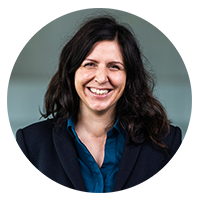How the courage to experiment keeps learning alive.
Dear readers,
Learning is movement. It begins the moment we leave the familiar behind.
Those who simply repeat what they already know may remain on safe ground — but stagnation is the price. Real learning demands courage: the courage to try something new, to tolerate discomfort, and to see uncertainty as an opportunity.
Growth doesn’t happen through routine but through curiosity. It emerges when we consciously and reflectively engage in experimentation — with an open and receptive mind. Learning, in this sense, is not a single act but an inner attitude: the readiness to embrace change again and again and to question what we think we know.
Where learning trully happens
Learning research has long shown: lasting learning takes place where cognitive effort is required, at the threshold between what we already understand and what we are only beginning to grasp. This space between the known and the new is the true place of learning. Those who move within it make progress, through steady, often quiet steps of insight.
We learn by doing: by trying things out, analyzing mistakes, questioning patterns and actively applying knowledge.
Learning thus becomes a process of active engagement with the world, an interplay of thinking, feeling, and doing. It’s not about passively absorbing information but about actively constructing meaning.
Learning is rarely linear. It’s a process that thrives on friction.
A certain difficulty, referred to in research as desirable difficulty, activates our thinking, promotes reflection and supports the long-term anchoring of knowledge. Because what seems effortless often remains superficial and what challenges us leads to depth and transfer.
Learning as a shared endeavor
What applies to individual learning is equally true for organizations. Collective learning doesn’t occur automatically, it must be consciously enabled. In an organizational context, learning goes far beyond traditional training. It encompasses the ability to continually renew knowledge and open up new courses of action on an individual level, within teams, and across the organization as a whole. This collective capacity to learn as a system is now recognized as a key to organizational resilience.
For learning to flourish in organizations, certain conditions must be in place:
structures that allow for experimentation, time frames that create room for reflection, and a culture that encourages questions and views mistakes as sources of learning.
After all, learning is more than the passive intake of information. It means actively constructing meaning, building actionable knowledge, and challenging established thought patterns.
Deep learning, in the sense of true capability development, differs fundamentally from the mere consumption of information. Only through application, reflection, and integration does knowledge become truly robust.
Learning cannot be mandated, but it can be shaped.
It arises through dialogue, exchange, and shared engagement with complex challenges. Wherever people share experiences, open perspectives, and question assumptions, learning grows — along with the capacity to actively shape change.
|
How to create activating learning spaces for yourself or your team:
|
Learning means letting go of perfection
True progress begins where the pursuit of perfection ends and insight becomes possible. Learning is not a linear ascent but a cyclical process of curiosity, error, and realization.
Organizations that embody this spirit naturally integrate learning into their culture. They understand: Development is not a side effect. It is the driving force.
Because learning is not a state to be reached. It is an ongoing process of movement, questioning, and discovery. And this movement begins — like all genuine growth — with a single courageous step: the step beyond the comfort zone.
Your Dr. Sandra Dentler
Image source: Photo by Freepik

